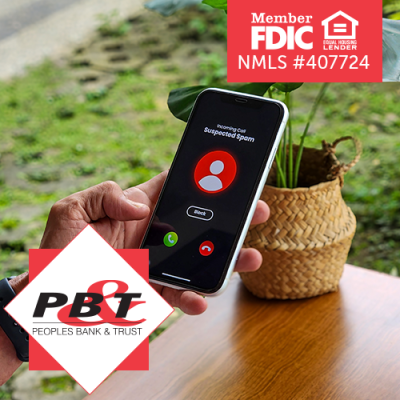
Protect Yourself and Your Accounts
Criminals are always coming up with new ways to try and steal your money and personal information. You need to be aware of the latest scams so you can stop yourself from becoming a victim of fraud or identity theft. Below you’ll find the latest information about the different types of scams you need to be aware of.
Social Media Scams
Did you know the person lurking behind that fun-looking quiz on Facebook or Instagram or Buzzfeed might be a hacker waiting to capitalize on your answers! This short video helps keep you aware of what might be hiding behind some of the fun and seemingly harmless games and quizzes available on social media.
Zelle Scams
As Zelle’s popularity grows, consumers need to be on the lookout for scams and frauds to reduce the likelihood of falling victim.
Holiday SCAMS
Did you know...while you’re spending money left and right over the holiday season, fraudsters are raking it in, hand over fist? As with everything that deals with fraud, if it seems too good to be true, steer clear!
COVID-19 SCAMS
Fraudsters will latch on to any opportunity to take advantage of businesses and consumers. Right now, criminals are using the COVID-19 pandemic to scam people out of their hard-earned money. Watch below to learn how to recognize a potential scam and avoid becoming a victim.
The Better Business Bureau has also published information to help Small Businesses recognize scams that are posing as the Small Business Administration (SBA)
Tips for Spotting a Small Business Loan Scam:
Look for a website that ends in .gov or .ca: Legitimate government entities will have websites and emails that end with .gov such as SBA.gov.
Do a quick internet search for similar offers: Many government agencies helping small businesses are offering loans and other programs. Be sure to confirm that the offer is real before sharing personal or business information. Find the agency website through an online search (never click on a link in an email) and be sure the program is on their website.
Government agencies do not typically text or communicate through social media avenues such as Facebook. Be wary of unsolicited messages.
There is no such thing as a “free” government grant. If you have to pay money to claim a “free” government grant, it is not really free. A real government agency will not ask you to pay an advanced processing fee.
Business typically don’t receive government grants. In general, the federal government only offers grants to nonprofits, educational institutions and state and local governments.
For more information, check out the SBA’s website.
AMEREN SCAM
In this scam, a customer receives an unsolicited phone call from an individual who falsely claims to be an Ameren representative. The scammer warns that Ameren will disconnect the customer’s electric service if the customer fails to make a payment – usually within a short timeframe. Scammers have even duplicated the Ameren Interactive Voice Response system, so when customers call back phone numbers provided by the scammer, it sounds like a legitimate Ameren phone number. Some of these criminals also use caller ID spoofing in order to replicate Ameren’s customer service number.
Red flags for scam activity
- The thief becomes angry and tells the customer his or her account is past due and service will be disconnected if a large payment isn’t made – usually within less than an hour.
- The thief instructs the customer to use their debit/credit card or to purchase a pre-paid debit or credit card, widely available at retail stores, then call him or her back to supposedly make a payment to Ameren.
- The scammer asks the customer for the pre-paid card’s receipt number and PIN number, which grants instant access to the card’s funds.
How to protect yourself
- Customers can make payments online, by phone, electronic check, mail or at pay in person locations.
- Customers with delinquent accounts receive an advance disconnection notification by mail with the regular monthly billing and by phone several days in advance – never a single notification hours before disconnection.
- If you suspect someone is impersonating an Ameren employee, end the conversation and immediately call Ameren Missouri at 1.800.552.7583. Customers can also follow Ameren on social media to receive the latest updates on scams.
Latest from the Blog
January 30, 2026
January 1, 2026

August 21, 2025